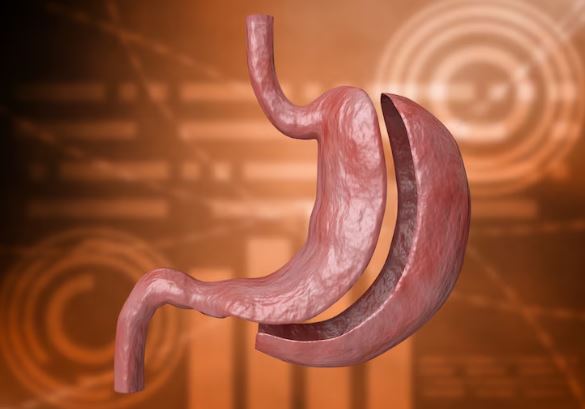Potential complications and side effects of gastric sleeve surgery
There are always risks associated with procedures like the gastric sleeve, even though they are generally safe. Before deciding if the surgery is right for you, you should go over these complications with your surgeon.

Following gastric sleeve surgery, specific adverse reactions are possible. Side effects are usually mild and only temporarily experienced. The most common side effects include aching or a little swelling near the incisions. In the early postoperative days, some patients report discomfort after eating. This feeling should pass once you've healed, provided you don't overeat.
Having a gastric sleeve surgery can also result in more severe consequences. This is when issues arise during or following the procedure. In comparison to the lesser side effects, these issues are substantially less frequent. The majority of patients won't have any significant side effects from this operation.
One risk of having the operation is that you could need a general anaesthetic. The anaesthetic can cause negative reactions in certain people. Blood clots and significant bleeding after surgery are other potential side effects. Although surgical complications are unlikely, they are made more likely by factors like high blood pressure.
Here is a list of some potential side effects from gastrist sleeve surgery:
- Infection: Despite the fact that antibiotics can help prevent post-operative infections, there is still a potential that you will get one and need additional treatment.
- Organ damage: Even though the danger is modest with a qualified surgeon, Your abdomen's other organs could sustain harm. It might require another surgery to make it proper.
- Staple line leak: Your stomach will be stapled shut during a sleeve gastrectomy. You might require a second procedure to seal your stomach if these start to leak while you are still recovering from the first one.
- Sleeve stricture: After surgery, the sleeve-shaped stomach may occasionally become even more constricted or develop an ulcer. The issue can require more surgery or an endoscopic procedure to be resolved.
- Gallstones: Some people who lose a lot of weight soon develop gallstones.
- Inability to reduce weight: A sleeve gastrectomy can help you lose weight, but it's not certain you'll succeed. Some people never lose the extra weight they gain, even after surgery. Your surgeon might need to switch from a keyhole treatment to open surgery. This necessitates a deeper abdominal cut. This is only done if employing the keyhole approach won't allow the surgery to be finished safely.
Each patient will experience problems differently during and after surgery. The risks of weight reduction surgery can be discussed specifically with your surgeon. Approximately 5% of individuals have complications following a sleeve gastrectomy. During surgery, there is a 0.2% chance of having deadly complications.
What causes a gastric sleeve to fail?
Sleeve gastrectomy failure, like other bariatric surgical treatments, is likely to be multifaceted and linked to a mix of technical, physiological, and psychological factors, such as gradual sleeve dilation, hormone adaptation, and relapse of incorrect eating behaviours, respectively.
For further information or to arrange a consultation for gastric sleeve and gastric bypass please contact us.
As Tourkey Health, we are committed to providing all kinds of services and support to our patients regarding gastric sleeve surgery.
